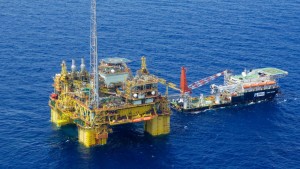The second year of IESE’s full time MBA Program is winding done and the students will graduate next May 13th. Last week the students in my course on Strategy and Geo-politics gave presentations on the projects they have been working on and I wanted to share them as they collectively underscore the connection between business strategy and the larger political and geo-political landscape in a given country.
One group looked at the connection between Roshan, a cell phone company connected to the Aga Khan Development Network (AKDN) and Afghanistan, where it is based. The company is a terrific example of the work of the AKDN which invests in some of the most difficult places in the world with the conviction that business can be a force for peace and prosperity and in this case, football.
- Ikea and India
Ikea has been sourcing production in India for 28 years and has been trying to begin retail operations there for some time. The interesting thing about the example is how Ikea’s positioning will likely be more up market in India and how it is difficult for them to find the kind of real estate that matches their business model in the country.
- Unilever and Indonesia
Unilever has been in Indonesia since 1933, commands a strong local market position, and to some degree has a history bound up the colonial past of the Netherlands. You have to translate the web page but can find it here.
- Gulf Link and Kuwait
KGL is a Shia owned logistics company in Kuwait and the example highlights the difficulty in doing business in the modern middle east in light of the growing tensions between Iran and Saudi Arabia.
Shell first came to Malaysia in 1891 and has been leading the country’s energy industry until the establishment of Petronas, the national oil company in 1974 and still has an enormous influence in the country. It is currently developing offshore assets in the South China Sea which are clearly in a territorial waters.
- KFC (Yum Brands) and Mongolia
Interestingly enough a team of Chinese students looked at KFC’s expansion into Mongolia. KFC is Chinese leading fast food franchise and the expansion into Mongolia highlights both the competition between China and Russia in the country as well as the difficulty of exporting certain food concepts as Mongolians are not known for eating Chicken!
- Gazprom and Russia
The recent history of Gazprom is fascinating as it appears to closely track Russian foreign policy under President Vladimir Putin. The history of the different pipeline projects is a fascinating story as pipelines take years to build and rely on geopolitical stability to operate.
- KMW and Saudi Arabia
KMW is one of the largest manufacturers of battle tanks in the world and the students looked at the German companies issues in selling military hardware to Saudi Arabia which is building up its military capability given the war in Yeman, its support for the coalition against ISIS, and tensions with Iran.
Perhaps the most moving example was Sodastream whose CEO, Daniel Birnbaum, was obliged to close a factory in the Palestinian Authority and eventual lay off Palestinian workers as a result of international labelling requirements for products made in the territories and constraints on cross border work permits imposed by the Israeli government. For Birnbaum, the idea of the factory was to create “an island of peace” and the story is a sad example of how politics and business can collide.
The idea of the course, and to some degree, IESE Business School’s full time MBA is to prepare young executives to play a role in the emerging global economy. To do this, a strong understanding of the geo-political issues of whatever region they are working in is not only a necessity but also an obligation.




